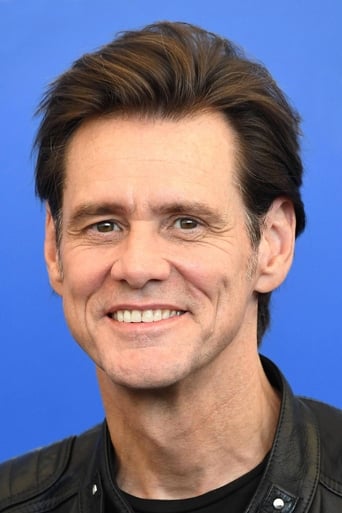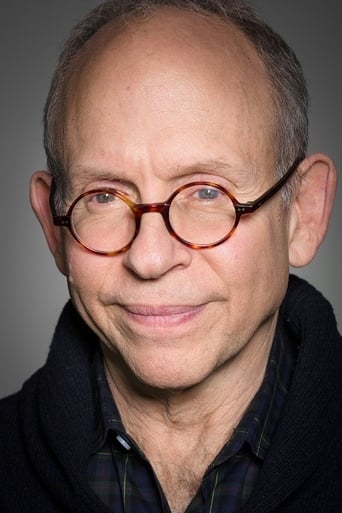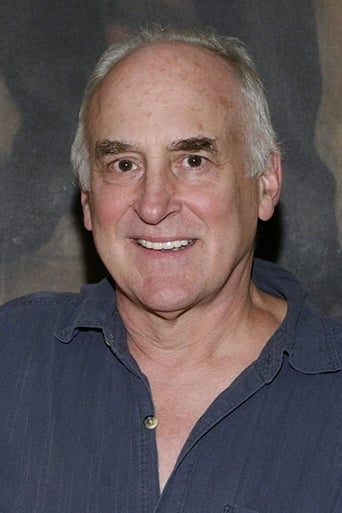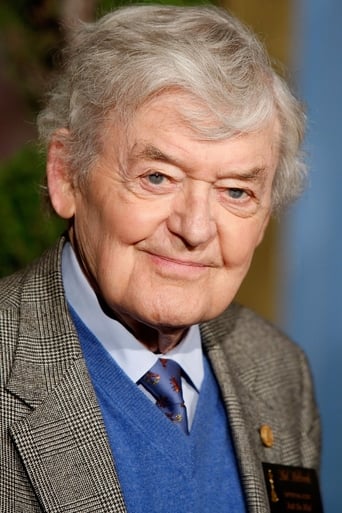Wordiezett
So much average
AnhartLinkin
This story has more twists and turns than a second-rate soap opera.
Fatma Suarez
The movie's neither hopeful in contrived ways, nor hopeless in different contrived ways. Somehow it manages to be wonderful
James
Interesting that Frank Darabont should direct this at-times almost overpowering homage to small-town America, given his Hungarian refugee background, albeit with residence in the USA from a very early age. One is put powerfully in mind of the limitless love and admiration for the British way put into wartime films by Hungarian Emeric Pressburger, in his superb film-making outings with Michael Powell. There is a lot of the "Canterbury Tale" or "A Matter of Life and Death" ambiance in "The Majestic", even if the primary homage is apparently being paid to the films of Italian-born Frank Capra, another immigrant in America from childhood. Admittedly, this is (for once) a film that Darabont did not write as well as direct, the task in this case being for Michael Sloane. And, just to get it straight, this is not the romantic comedy it is unfortuitously described as, and it is a hundred times better than the box office flop some have written it off as.The line between proud and touching homage and pastiche is narrow indeed, so a great deal of what keeps this film (just) out of the latter category comes down to the acting. In the starring role, Jim Carrey (mostly) not being Jim Carrey is refreshing in the extreme, but the real plaudits go to some superb portrayals by older actors.Watching this film for the third time in my life now (and having largely forgotten the plot details), I was again stung into tears with the emotion of the Carrey character's rescue by and first encounters with - in fairly quick succession - the picturesque small town, and specifically its senior citizen Stan Keller (played by the late James Whitmore), veteran cinema-owner Harry Trimble (the co-starring Martin Landau, who puts in a marvellous performance), Doc Stanton (David Ogden Stiers) and Sheriff Coleman (Brent Briscoe), and then Mayor Ernie Cole (Jeffrey DeMunn). This description of the immediate setting up of our image of the town sounds traditional and structured to the point of syrupy cliché, but somehow avoids being so, and is instead a remarkably moving tribute to basic human kindness and decency. This is only added to as we meet up with black First World War veteran Emmett Smith (played by Gerry Black).This is a first contrast with the world Peter Appleton really inhabited prior to his accident and memory loss, in which the shallow and pointless razzmatazz and cynicism of Hollywood is just now coming into uncomfortable contact with the unpleasant, aggressive, intolerant hostility-cum-brutality of the "Unamerican" witch-hunts.But back out there in what the makers would like us to see as the true(r) USA - neither profit-oriented at the cost of reality, nor mean and politicised and paranoid at the cost of reality, there is Lawson, California, where our amnesiac hero finds himself washed up (literally). The town has a yawning gap in its age pyramid due to the War, which means that many key roles are played by people(mostly men whose sons, though with a few women whose boyfriends) have made the supreme sacrifice, or at least paid a very high price. They and their town are scarred, despite their patriotism and belief that the right thing has been done. Lawson is indeed a beautiful, comforting, secure, sedate place in which (nearly) everyone is kind, nearly all of the time, but part of the reason for that is underlying pain and loss, and there is a stagnation there that means that 1951 for these people - even when they do let their hair down - is much closer to Glen Miller than it is to Bill Haley.The arrival (or return) of Carrey's Luke Trimble doppleganger is the trigger for the town to move on, "risky" a step into the unknown as that may be. And here the film is far less formulaic than it might at first appear, thanks to its being suffused with tension. We the viewers know that, through absolutely no fault of his own, Appleton-Trimble has raised such high expectations among the townsfolk - so much hope and need has been pinned on him - that at any moment sad reality is likely to be returned to with a bump - and of course this is all the more the case given that he may well not even be the person he is taken to be. Luke's girlfriend (superbly played by the now-very-familiar Laurie Holden) is among those waiting to be convinced, but she falls back in love anyway, and this too is serene and touching, and all the more so when augmented by doting photographic touches, as well as the somewhat Aaron Copland-like score from Mark Isham.It would be a sad world indeed if we laughed or yawned at, or derided as ludicrously out-of-date and implausible, a world in which people help each other, fall in love, love their families, believe in things, believe in their country and are prepared to die - or suffer loss - in its name. And happily "The Majestic" does not encourage any of these negative responses, instead going into surprisingly sophisticated and multi-layered battle with meanness and cynicism and apathy, behind the shining suit of armour that is faith in decent small-town America. It is a pleasure and privilege and moving delight to see such well-crafted work so convinced of its own message, and the whole approach reaches a crescendo in an admirably chilling and authentic-looking Committee testimony scene. This film will surely not suit everybody, but some will be impressed and moved enough to have it change their lives at least a little.
Python Hyena
The Majestic (2001): Dir: Frank Darabont / Cast: Jim Carrey, Martin Landau, Laurie Holden, Bob Balaban, James Whitmore: Memories of Hollywood glory days even within the midst of corruption. Jim Carrey plays a struggling filmmaker forced to testify in the House of the Un-American Activities due to suspected Communist communication. After being fired he rampages on alcohol before driving off a bridge. When found he is believed to be a war veteran figured for dead. Martin Landau plays his father who wishes to re-open a theatre called the Majestic. Quite predictable hinting on too many formula elements. Director Frank Darabont previously made The Shawshank Redemption, and here he delivers a credible 1950's setting. This is not the great film that the previously mentioned film is but it does hit the right notes with its historical points. Carrey is wonderfully sympathetic within a life that he accepts because others do. Landau is excellent as his father who aims to reconnect with his son and unify themselves through the theatre with others. Laurie Holden plays the love interest in a familiar role that never seems to elevate. Other roles are standard including Bob Balaban portraying an annoying finger pointer with the charge against Carrey and Communist activity. It is a reflection on a time when cinematic magic was truly something majestic. Score: 8 ½ / 10
Robert J. Maxwell
There's a little bit of something for everybody in this sentimental and heart-warming, thoroughly commercial, tale of the rise, fall, rise, fall, and rise again of Jim Carrey.It 1950 or so. Carrey is a screenwriter in Hollywood, now accused of being a communist by the House Unamerican Activities Committee because years ago he attended meetings of the Bread Instead of Bullets Club at UCLA, with the intention of being near a girl he was interested in.Blacklisted by the studio, he gets drunk, drives a long distance, has an accident, and loses his memory. He is thence taken by a sympathetic old chap to the nearest town -- I forget whether the name was Meadowville, Smallville, Homewood, Arcadia, Camelot, Brigadoon, or Cloud Cuckoo Land, but it's one of those idyllic towns that only exist in The Twilight Zone -- in which impossibly amiable people all mistake Carrey for a World War Two hero whose body was never discovered.The unwitting Carrey is fêted, re-introduced to his old girl friend, has love lavished on him by his ailing father, Martin Landau, and brings the bereaved community back to life, symbolized by the reopening of the defunct MAJESTIC THEATER, towards whose refurbishing the entire community has contributed. It's opening night is a blaze of color and neon glory. The awed mayor -- my co-star, Jeffrey DeMunn -- buys the first tickets.However, the obsessed hunters of HUAC are in hot pursuit and manage to track Carrey down, at which point his memory returns and he realizes he's not Luke, the winner of the CMH, but just another blacklisted screenwriter. The confrontation, the presentation of the subpoena, takes place just after Landau's funeral, in the town square, surrounded by residents. Man, the predators went out of their way for this commie on the lam. There are half a dozen big black Buicks with those vertical grills that look like fangs in an angry mouth. The hunters have some of the most misshapen faces ever committed to celluloid. The worst part is that Carrey, now believed to be a communist agent, is shunned by the community that loved him so much. Even his girl turns away in disgust.I said there was a bit of something for everyone. We can start with the popular tale of Martin Guerre, done and redone cinematically several times. Then there is Frank Capra and his adoring but fickle crowds. Then there is the letter from the REAL hero, who evidently did die in combat, that is a shameless rip off of a very moving letter that was written by a soldier to his wife. It's read aloud in, I think, Episode Two of Ken Burns' magnificent documentary on the Civil War.The climactic scene has Carrey called to testify before the HUAC. He's expected to read a statement, after a no-more-than due humiliation by the legislative Inquisition, confessing that, yes, he was a communist, but he apologizes -- and furthermore, here are the names of some other Reds I've known. This long, drawn-out courtroom scene ends appropriately with a rip off from Woody Allen's "The Front." But, despite Carrey's pre-testimony anguish, there's never a doubt about what he will do.The beautiful photography of the little coastal town is impressive. My God, do I want to live there. Everyone friendly. Nice beach. No garbage in the streets. No graffiti. No minorities at all except one perceptive and sympathetic black usher at THE MAJESTIC THEATER.But the film is repulsive because it thinks that you and I are so stupid that we don't see the skull beneath the skin. The movie (and the wistful music) tugs at our heart strings. It brings tears to the eyes. But it does so as mechanically as peeling an onion does. It plays the audience like a funereal organ moaning out "Oh, Mein Papa." The story is so desperate that it will do almost anything to get an emotional response. It will drop an entire story of an amnesic young man bringing a renewed spirit to a dispirited little town, and it will thrust us into a political story in which "good" is innocent Jim Carrey and "evil" are the guys with the heads straight out of an Ivan Albright painting.The performances are fine but they can't overcome this shoddy material. The writer, Michael Sloane, and the director, Frank Durabant, ought to be ashamed of themselves. The Twilight Zone did both kinds of stories better.
grantss
Beautiful, wonderful movie. The whole movie has a 40s/50s feel to it, an innocence and warmth generally lacking from modern movies (the fact that it is set in the 50s helps). Shows more than just emotional depth, is an exploration of the importance of freedom of speech too.Sensitive, deft direction from Frank Darabont, whose previous two movies were The Shawshank Redemption and The Green Mile.Sensitive, convincing performance from Jim Carrey. While more known as a comedic actor, his dramatic performances are generally first-rate: this, Eternal Sunshine of the Spotless Mind, The Truman Show, Man on the Moon.Great supporting performances from Martin Landau, Bob Balaban and Laurie Holden, amongst others.













